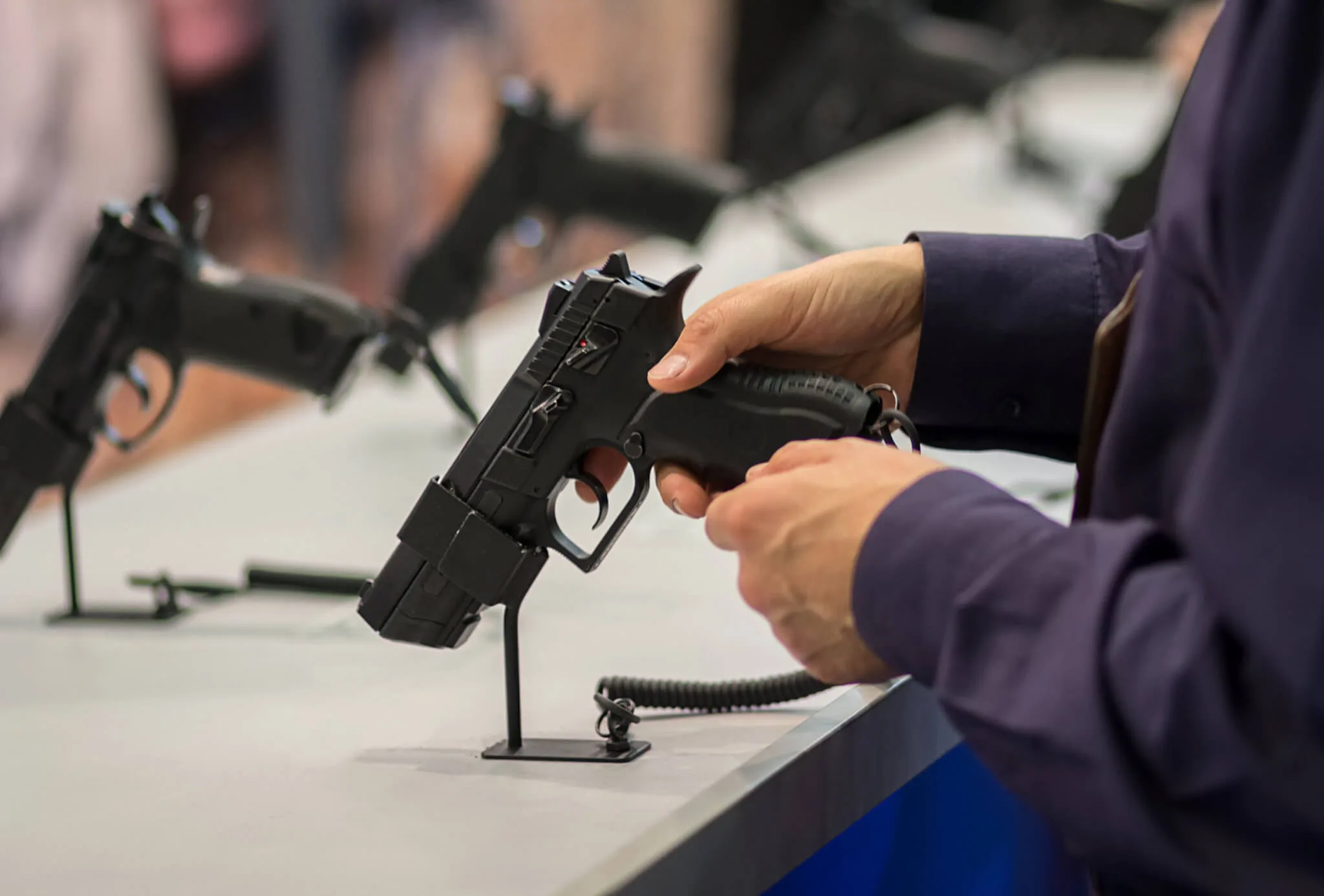
Image via Shutterstock
The highest number of background checks—when the system scanned 8,346 buyers—came on March 20, a day after Gov. Wolf ordered a shutdown of all nonessential businesses.
In March, the online state background check system for gun buyers crashed due to the surge in requests—twice. First-quarter figures from the Pennsylvania State Police show that completed checks increased 14% compared to the same time period in 2019, according to a news bullentin released on Wednesday.
There were 304,876 background checks conducted in Pennsylvania during the first quarter of 2020, compared to 266,442 during the same quarter last year.
According to local media reports, the highest number of background checks came on March 20, when the system scanned 8,346 buyers. The highest number of checks ever occurred on Black Friday in 2017, when 9,178 checks were conducted.
On March 17, a server issue forced the system to shut down from 8 a.m. to 11:30 a.m. Later that afternoon, a second shutdown from 5 p.m. to 8:40 p.m. was blamed on a backlog of requests, according to state police officials.
Ryan Tarkowski, the communications director for the Pennsylvania State Police, said the data correlates with a COVID-19-related spike. “It’s clear the volume went up as COVID-19 awareness grew in mid-to-late March,” Tarkowski told Lancaster Online. The other busiest days of the quarter were in the same month: 7,704 checks on March 16 and 7,313 checks on March 19.
Those peak days occurred the same week President Donald Trump declared a national emergency, signing the coronavirus relief package into law. That same week, Gov. Tom Wolf closed all Pennsylvania schools for at least two weeks. On March 19, Wolf ordered a shutdown of all non-essential businesses—that day and the following day were two of the busiest days for firearm purchases in Pennsylvania.
Tarkowski told Lancaster Online that gun sales often increase during times of panic, citing the 2012 Sandy Hook Elementary School shooting in Connecticut as an example, where a similar spike in gun sales occurred. “It’s not unexpected,” he said.
The state background check system, formally known as the Pennsylvania Instant Check System, is used by licensed firearms dealers, county sheriffs and police chiefs in first-class cities. This system determines a person’s legal ability to acquire a firearm through a purchase or transfer. The data from the state police show that 4,866 people were denied from purchasing a firearm post-background check. More than 1,200 of those denials were then referred to law enforcement agencies and led to 59 arrests.
Investigations are triggered if someone provides false information during a background check, according to state police. “In Pennsylvania, a person commits a felony of the third degree if they make a false oral or written statement on any federal or state agency form or willfully presents false identification that is likely to deceive a firearm seller, licensed dealer or licensed manufacturer.

For Rep. Susan Wild, supporting PA families includes reproductive rights and much more
Rep. Susan Wild wants to be very clear with Pennsylvanians: Donald Trump is committed to taking away women’s reproductive freedom, but he is not...

School districts working with anti-LGBTQ groups can cost your kids’ schools millions
Parents across South Central Pennsylvania are worried about the potential financial impacts working with anti-LGBTQ groups may have on their school...

VIDEO: Trump distances himself from his anti-abortion views
Donald Trump appeared on WGAL on Tuesday and continued to distance himself from his anti-abortion views claiming that reproductive rights are now a...

VIDEO: Community pushback gets school board to rescind decision on denying gay actor’s visit
Cumberland Valley School Board offered a public apology and voted to reinstate Maulik Pancholy as a guest speaker a week after the board voted to...

VIDEO: Project 2025 brings nuclear armageddon back into vogue
Project 2025 is a titanic document, with plans ranging from cutting half of all government employees to targeting reproductive rights on a scale...




